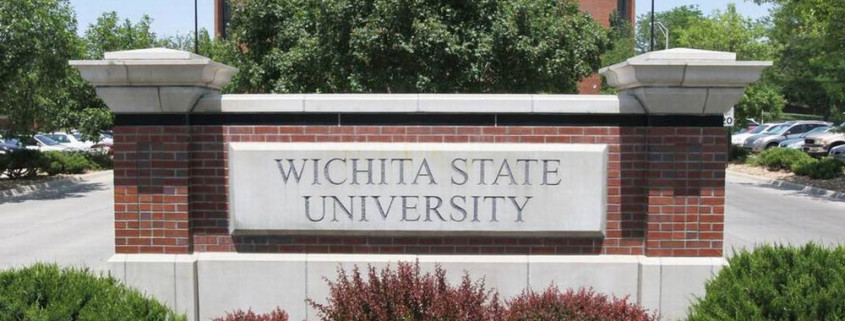Think of your future in the LAND OF IDEAS!
Officially known as the Federal Republic of Germany, it has been at the center of Europe’s political and economic powerhouse for a long time. It is the largest and the most populated country in the continent of Europe. In spite of the two world wars, which nearly destroyed the country, Germany has emerged to be the powerhouse of both economic as well as intellectual aspects of the region.
Apart from Russia, Germany is the most populous country in mainland Europe. At present there are 387 universities situated in Germany. They can be broken up in two universities numbering 110, 221 universities teaching applied sciences and 56 institutions that teach art and music. Higher education, universities and establishments are wholly state funded. Alternatively, they are also recognized by the state.
WHY SHOULD YOU STUDY IN GERMANY ?
Germany is the third most popular destination among international students in the world. More than twelve percent of students at German universities come from abroad – just like you. Germany is an attractive place to study and German university degrees are highly respected by employers worldwide.
You have a top-class degree recognized around the world: German higher education is one of the best in the world! Whether it’s cars or education, people everywhere recognise “Made in Germany” as a seal of quality. You can benefit from Germany‘s long and famous university tradition especially in the fields of engineering and science. A German university degree is highly respected by employers around the world.
You have a diverse range of study opportunities: Germany’s higher education system has something for everyone! There are almost 450 state-accredited universities with some 17,500 degree programmes in Germany. German universities offer degree programmes in every possible subject and academic level – be it bachelor’s, master’s, state examinations or doctoral degrees. General universities focus strongly on scientifically oriented study in a wide range of disciplines. Universities of applied science, on the other hand, are very practice-oriented. If you’re more interested in artistic subjects, you can enrol at a college of art, film or music.
You can study in English: More and more courses and degree programmes are being offered in English, especially at the master’s degree level. This is good news if you don’t know any German or if your German isn’t good enough yet. You’ll find an overview of international degree programmes in Germany in the large DAAD database.
You are not alone: Around twelve percent of students at German universities come from foreign countries, just like you. You can make friends from around the world, become acquainted with different countries and expand your horizons. The universities offer support to make your start in Germany as easy as possible. There are many mentoring programmes available, such as “Buddy” and “Tandem” programmes.
You pay very low tuition fees – and sometimes none at all: Students normally don’t have to pay tuition fees at German universities, and if so, the fees are very low. Most German universities receive considerable financing from the government. Bachelor’s degree programmes are usually tuition-free at public universities. Some master’s degree programmes, however, come with tuition fees, but they’re not as high as in other countries.
You have very affordable living expenses: Compared with other European countries, the cost of living in Germany is reasonable. The cost of food, rent, clothing and cultural activities are equivalent to the EU average. There are also a number of concessions available to students. You can receive reduced prices at theatres, museums, opera houses, cinemas, swimming pools and other institutions. All you have to do is present your student ID.
You can benefit from many scholarship programmes: As an international student with outstanding academic achievement, you have good chances of receiving a scholarship to finance your studies in Germany. The German Academic Exchange Service (DAAD) is one of the largest scholarship organisations in the world and offers countless scholarship programmes. No matter what your country, subject or status, you’ll find a scholarship that matches your profile and needs in the DAAD scholarship database! And not only does the database contain programmes offered by the DAAD, but also many other organisations in Germany.
You live in a safe country: Germany is a safe country – also on an international scale. The police are reliable and help you in every situation. Whether you live in a big city or in the country, you can move freely day or night without having to take any special precautions.
You live in a diverse country in the heart of Europe: Beaches and mountains, medieval city centres and pulsating metropolises, and above all, lots of nature. Germany is a diverse country with many facets! Living in Germany means living in the middle of Europe surrounded by many other countries. Whether you’d like to visit Paris, Prague, Rome or Copenhagen, you have a wide range of destinations at your doorstep. Within a couple of hours by train or plane, you can experience an entirely different culture and language. Weekend trips are no problem and affordable.
You learn a language which can open many doors: German is one of the ten most spoken languages in the world. Some 185 million people worldwide can speak German. You can still study in Germany even if you don’t know German, but having some knowledge of the language can make everyday life easier and help you make friends faster. Knowing a foreign language also looks great on a résumé! Nobody says that German is an easy language, but there are many ways to learn German – in a course, with a tandem partner or with German flatmates.
GERMAN EDUCATION SYSTEM AT A GLANCE
The educational system of Germany is underlying to continuous changes and reforms. Main point in the last years was the reorganization of the Gymnasium. The nine year education was changed into an eight year education to get the Abitur. Furthermore, the academic system had changed because of the Bologna reform. The degrees obtained are now called Bachelor and Master.
Studying in Germany requires the graduate degree Abitur or the advanced technical college entrance qualification. International students have to show a similar graduate degree. Until now it was not possible to build a central organization for application and award of university places. Because of this the applications still need to be sent to every university or advanced technical college.
The admission requirements are also defined by the universities. Therefore, they can be different for the same subjects at different universities. In Germany there are three different kinds of advanced colleges or universities. Arts, film or music advanced colleges offer practical education in the artistic subjects. Advanced technical colleges however, cover the scientific and social subjects. They also set value on practical experiences in their education. The third category is the so called university. They offer all different kinds of subjects. Practical experience is an important point as well but the universities are especially famous for their firm theoretical education.
Another differentiation can be made between public and private universities. Public universities are financed by the government and do not charge tuition fees as of October 2014 in the entire country.
Private universities in contrast are financed by the fees paid by students and these can be quite expensive. In Germany can be found much more public universities than there are private ones. German law says that education should be offered to everyone and everyone should be able to afford adequate education. Therefore, German has decided to abolish tuition fees in all public universities in the country. Moreover, there are numerous possibilities to get help from the government, for example Bafög-money.
The studies in Germany are in some aspects more theoretical than in other countries and they consist of many lectures from the professor. In the lecture there are all students of one year and there are just a few exercise lessons in which the theoretical part can be practiced and proofed in reality. At the end of every term the students get grades for their final examination and for speeches, assignments and practical projects. Depending on the subject the composition of these parts can differ. Practical education can also be offered in internships which are an obligation in some subjects. For some weeks or months the students have to work in a company and use their theoretical knowledge in real life situations to gain experience. This is also a good chance to find a job for the working life after university. The graduate degrees from university are accepted and estimated worldwide. The education at German universities is considered as a good one. The first graduate degree can be obtained after six to eight terms and is called Bachelor.
Afterwards it is followed by the Master degree after another two to four terms. Both degrees require passing the exams and writing a specific graduate thesis. For the subjects medicine, dentistry, law and pharmaceutics as well as the teaching degree another degree is required which is called Staatsexamen. After the Master degree students can also do their graduation to get their doctor’s degree. Academic education in Germany should give firm basic knowledge and theoretical background as well as specific details and practical application. After successful studies the alumni should be able to work successful in every part of the working environment.
BASIC ENTRY REQUIREMENTS FOR INTERNATIONAL STUDENTS
ACADEMIC REQUIREMENTS:
Undergraduate Admission: HSC or GCE “A” Level (a minimum of three principal passes in the appropriate subjects), the Australian matriculation or International Baccalaureate, Canadian Pre-University for Matriculation (OSSD). Minimum requirements of marks (CGPA) differ based on institutions and study programs. International Student from some countries need to complete at least 2 years of study at their local university in order to get admission direct to bachelor programme in Germany.
Graduate Admission: A four/three-year undergraduate (Hons) degree programs (or equivalent) which is recognized in credential issuing country as well as in Germany. Minimum requirements of marks (CGPA) differ based on institutions and study programs. Student who has completed master’s program with required results and other supporting academic achievements can apply for admission in doctoral admission.
LANGUAGE PROFICIENCY REQUIREMENTS:
Acceptable proof of proficiency in English such as TOEFL or IELTS or German. The required language proficiency test scores vary from one institution to another based on students admission level. Students, who’s medium of instructions is in English at Previous institutions can sometimes be exempted from English language proficiency test results requirement.
TEST SCORE REQUIREMENTS:
Generally no test score required for study in Germany. But scores are advantages if you have any.
SAT is not mandatory but considered as advantage to get admission in some highly ranked institutions for undergraduate programs.
GRE (non-business) / GMAT (for MBA/other business related field) is typically an advantage (not mandatory) for entry into master and doctoral programs in highly ranked institutions.
BASIC DOCUMENT REQUIREMENTS FOR VISA APPLICATION
Requirements for visas for direct admission (no language course required):
- Valid passport, along with all prior passports and 2 recent passport photographs (NOT Physically attached to the application form & not older than six months)
- Two filled-up application forms, original documents & 2 sets of copies of all documents (Please note your cell phone number and your email address below your signature on page 3)
- Original admission letter from a German university (with the study course being mentioned)
- Proof of sufficient funds for the first year of studies (EUR 7,908.00) on a “blocked account” (Sperrkonto) with a bank in the Federal Republic of Germany. Proof of secured subsistence may also be rendered by a declaration of commitment (Sections 66, 68 of the German Residence Act) or a confirmation of a scholarship (equaling EUR 7,908).
- Health insurance policy for ninety days (according to the list approved by the Schengen states)
- All academic certificate & mark-sheets (also from completed academic terms of an unfinished degree)
- Internationally recognized English language proficiency certificate (e.g. IELTS, TOEFL, TOEIC, TELC, CPE)- If applicable
- Internationally recognized German language proficiency certificate on a B1-level for all four areas of competency (if German proficiency is required for taking up the student’s desired study course)
- Further documentation as per the instructions of visa officers of relevant Embassy
Requirements for language course participants (if more German proficiency than currently achieved is required for taking up the desired study course):
– All the documents above + original admission letter of a language school or a “Studienkolleg” in Germany
– Optional to the admission letter from a German university, any of the following:Conditional admission letter
– “Final confirmation” from “uni-assist e.V.” (Only applicable for certain universities)
| BOOK AN EVENT PLACE |
|---|
| SIGN UP FOR SCHOLARSHIP |
| CHECK APPLICATION STATUS |
| REQUEST AN ADVISING POST |
| SCHEDULE FREE COUNSELING |
| SCHEDULE PSYCHOMETRIC TEST |
| REQUEST PERSONALISED INFORMATION |










